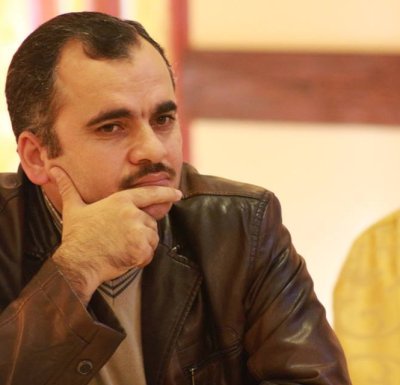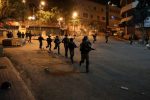Hours after Israeli Prime Minister-designate Benjamin Netanyahu announced that he has been able to put together a coalition government the most far-right in the history of Israel just a few minutes before his mandate to form it ended it is clear that it faces internal and external challenges. Not the least of these is that the extremist nature of the coalition is a concern for the international community.
The occupation army’s killing of Palestinian civilians including children is already a serious issue as is the expansion of illegal settlements and both are likely to get worse. This could have a significant negative impact on the international arena. Although the US has many questions about the new government Washington is waiting to see how things will change on the ground.
Nevertheless there are a number of tension points that need to be addressed including the spike in numbers of Palestinians killed by the occupation forces especially in Jenin. That’s where Al Jazeera journalist Shireen Abu Akleh was killed by an Israeli sniper in May. Just a matter of days ago Jana Zakarneh 16 was shot and killed while she was on the roof of her house. These are just two of many killings in what has been described as the deadliest year for Palestinians in the occupied West Bank.
Another issue is the decision of the occupation authorities to expel the residents of the village of Khan Al-Ahmar east of occupied Jerusalem. International pressure has prompted the postponement of the expulsions several times. If the new far-right government presses ahead it will create additional tension between Israel and the US and EU.
In the Masafer Yatta area meanwhile its 19 small Palestinian villages in Area C are apparently in the Israeli army’s firing zones. Declaring places to be nature reserves and firing zones is one ruse that the occupation authorities employ to expel Palestinians from their land. The eyes of the world are on Masafer Yatta.
Settlement construction in the A1 area is another challenge although it stopped years ago due to its strategic location for the Palestinians as it links Bethlehem with Jericho and is regarded as the heart of the envisaged Palestinian state. So when Israel says that it plans to build 3500 settlement housing units there an international response can be expected.
Another expulsion issue is the Israeli decision to expel Palestinians from the village of Susiya south of Mount Hebron. If the next government goes ahead with the plan it too will prompt a negative international reaction.
It is clear that if Netanyahu backs down before the demands of his extremist partners on any of these points he will openly defy the administration of US President Joe Biden. He is keen to reach an understanding with Washington on regional and international issues so he faces having to choose between staying as prime minister of a government that is isolating Israel from the world and the breakdown of his coalition. Can he persuade his far-right allies to curb their extremist tendencies?
On the domestic front it is being felt increasingly within Israel that there is a widening gap between the public and the state security services. This even extends to the operational institutions themselves: the army the Shin Bet (internal security) the Mossad spy agency and the police. This is coinciding with a growing number of Palestinian resistance operations in the occupied West Bank.
A new challenge looms for the government related to the Palestinian citizens of Israel and the state’s attempts to separate them from the West Bank and Gaza Strip. Right-wing ministers have already said that they intend to seize more land in the Negev and Galilee. The Palestinians are facing an existential threat in the Negev and state incitement against them has prompted three-quarters of survey respondents to deny that Israeli Jews have a legal historical and religious right to the land of Palestine.
Israel itself is facing what are seen as existential threats not least the growing Boycott Divestment and Sanctions campaign; the occupation state’s delegitimization and growing hostility towards the state in international universities and the UN.
At the same time Israelis know that the disintegration of the Palestinian Authority is a real possibility. It has no control over the cities in the north of the occupied West Bank especially Jenin and Nablus which are both witnessing the birth of new armed cells. Israel needs to prepare for this and have an alternative to Mahmoud Abbas waiting in the wings. The octogenarian is not in good health.
It is clear that the West Bank will occupy a prominent place on the next government’s agenda as it seeks to secure its existence. This threatens the Palestinians because ministers want to impose Israeli sovereignty on large swathes of occupied territory including the Jordan Valley and the mountains. This is on top of imposing security control over the entire West Bank which is impossible without the settlement blocs. All settlements are illegal under international law of course and yet they play a major security role for the occupation state no less than the army.
Gaza is still a real challenge for the next Israeli government as resistance groups build up their military capabilities. This makes the 2005 unilateral withdrawal from the enclave look even more of a failure by the government of the day. The fact that a series of military offensives have been deemed to be necessary against the Palestinians in Gaza is evidence of this. Those offensives have killed and wounded thousands of Palestinian civilians and destroyed homes and essential infrastructure.
Israel will have to make some serious decisions on these challenges all of which carry equally serious consequences. As usual though we can expect the Palestinians to have to pay the price.
– Dr. Adnan Abu Amer heads the Political Science and Media Department of Umma University Open Education in Gaza. His article appeared in MEMO.











